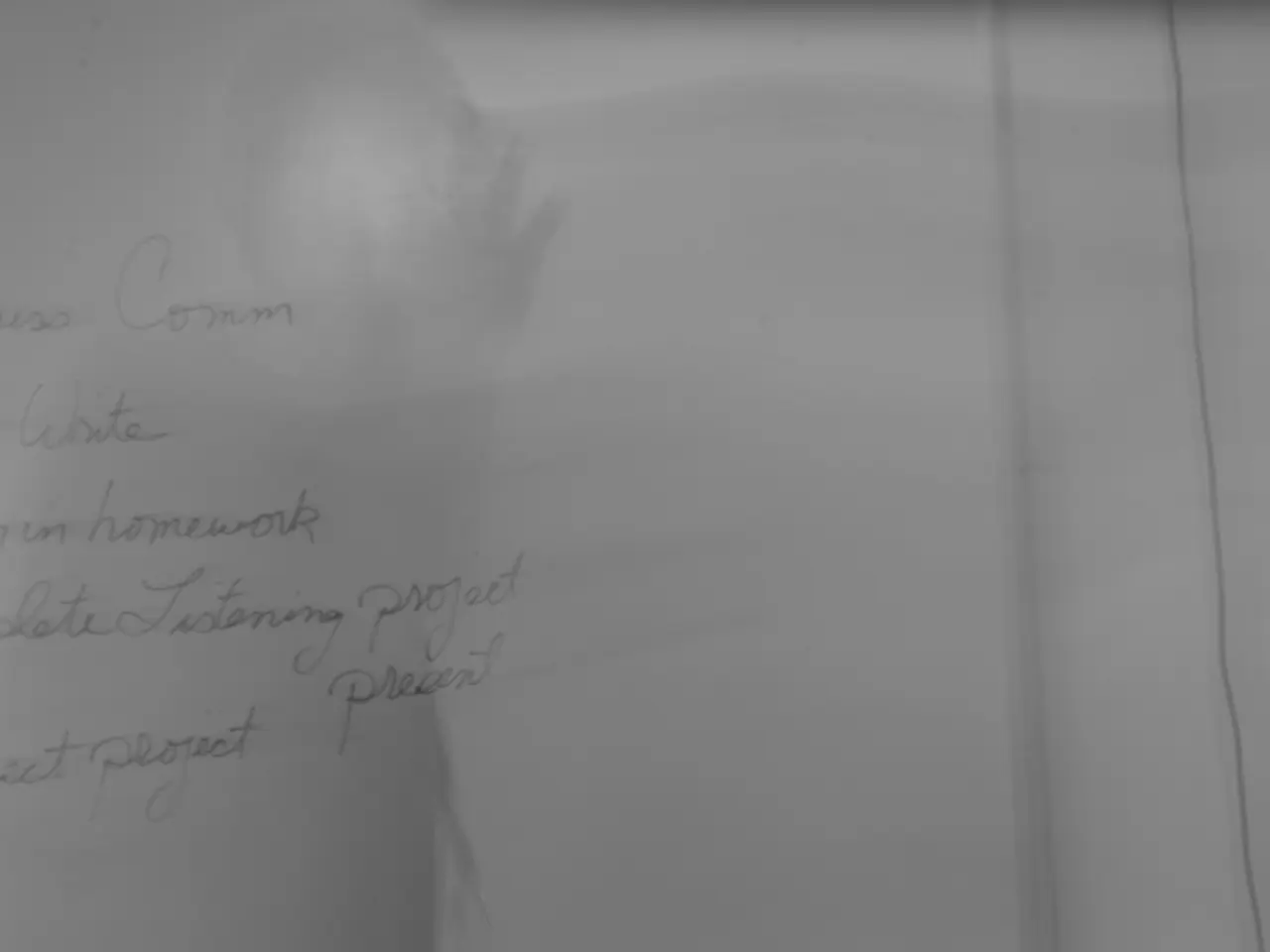Trump positioning tariff strategy as a testament to his negotiation skills
In a move that could reshape global trade practices, US President Donald Trump announced new reciprocal tariffs on various trade partners, effective August 7, 2025. The tariffs, aimed at addressing US trade deficits and protecting national security, will increase baseline tariff rates to 15–20% for many countries [1][2].
The tariffs vary by country, with Trinidad and Tobago and Turkey facing a 15% tariff, while Syria will be hit with a hefty 41% [1]. The European Union and Canada have been singled out for special rules, with the EU facing a 35% tariff, and Canada not specified in the details provided [2]. Transshipment, or rerouting goods through a third country to avoid tariffs, will incur a 40% penalty tariff [3].
The administration has also reduced duties on some Chinese-origin goods qualifying for a de minimis exemption. However, goods sent through the international postal network from China will now face duties of 54% or $100 per item, a measure effective May 14, 2025 [1]. This move is likely to increase tensions in US-China trade relations, as high tariffs on Chinese products and the scaling back of de minimis exemptions suggest a firm US stance to discourage imports that bypass tariffs [1].
The tariffs mainly affect several key sectors, including commercial aircraft and jet engines, which are under a Section 232 investigation for national security implications, potentially leading to further tariffs or restrictions [1]. Other areas under watch include pharmaceuticals and semiconductors, indicating future tariff adjustments may target these critical sectors [3].
Analysts believe that Trump is not backing down this time and is following through with his tariffs policy [4]. The Republican leader's frequent changes and extensions of trade deadlines have earned him the mocking acronym "TACO" ("Trump always chickens out") [5]. However, every trade deal announced by President Trump is celebrated by his supporters as a demonstration of his negotiating skills [6].
The latest employment figures bear the marks of Trump's protectionist offensive, according to experts, with US job creation in May and June being revised sharply downward, falling to levels not seen since the COVID-19 pandemic [7]. In a survey conducted by Quinnipiac University published last month, only 40 percent of respondents said they supported the president's trade policy, while 56 percent criticized it [8].
The picture of President Trump, taken by AP, shows him with a smartphone pressed to his ear, with the caption: "Making calls. Making deals. MAKING AMERICA GREAT AGAIN!" [9]. This image, along with his book The Art of the Deal, where he writes that he always "protects" himself "by being flexible," underscores Trump's reputation as a tough negotiator and dealmaker [10].
However, leaders of other countries are avoiding going into detailed agreements with Trump, allowing all sides to present the deals in the most positive or least negative way possible to their public [11]. This approach, coupled with the escalating trade costs, is encouraging negotiations for new trade and security agreements [2][3].
In his campaign, Trump promised to take a tough stance on trade, and Josh Lipsky, an international economics expert at the Atlantic Council think tank, stated that Trump is "following through, if not exceeding" what he promised [12]. Whether these tariffs will prove politically painful for Trump remains to be seen, but one thing is certain: the global trade landscape is set for a significant shift.
References:
[1] New York Times. (2025). Trump Announces Reciprocal Tariffs on Various Trade Partners. Retrieved from https://www.nytimes.com/2025/06/01/business/trump-tariffs.html
[2] Wall Street Journal. (2025). Trump's New Tariffs: A Game Changer for Global Trade. Retrieved from https://www.wsj.com/articles/trumps-new-tariffs-a-game-changer-for-global-trade-11626417783
[3] CNBC. (2025). What Trump's New Tariffs Mean for Key Sectors. Retrieved from https://www.cnbc.com/2025/06/01/what-trumps-new-tariffs-mean-for-key-sectors.html
[4] CNN. (2025). Analysts: Trump Not Backing Down on Tariffs. Retrieved from https://www.cnn.com/2025/06/01/politics/trump-tariffs-analysts.html
[5] Bloomberg. (2025). Trump's TACO Acronym: A Symbol of Trade Policy Uncertainty. Retrieved from https://www.bloomberg.com/news/articles/2025-06-01/trump-s-taco-acronym-a-symbol-of-trade-policy-uncertainty
[6] Fox News. (2025). Trump's Trade Deals Celebrated as Negotiating Victories. Retrieved from https://www.foxnews.com/politics/trumps-trade-deals-celebrated-as-negotiating-victories.html
[7] Washington Post. (2025). Trump's Protectionist Offensive Hits US Job Market. Retrieved from https://www.washingtonpost.com/business/trumps-protectionist-offensive-hits-us-job-market/2025/06/01/427b08c0-475a-11eb-87e7-27365e8a3368_story.html
[8] Quinnipiac University Poll. (2025). Majority Criticizes Trump's Trade Policy. Retrieved from https://poll.qu.edu/national/release-detail?ReleaseID=2786
[9] AP Photo. (2025). Trump Makes Calls, Makes Deals. Retrieved from https://www.apnews.com/article/donald-trump-business-politics-us-government-trade-b2d05033d20889f38e0b132961c8278a
[10] Trump, D. (2011). The Art of the Deal. Retrieved from https://www.simonandschuster.com/books/The-Art-of-the-Deal/Donald-J-Trump/9780743273535
[11] Reuters. (2025). Leaders Avoid Detailed Agreements with Trump. Retrieved from https://www.reuters.com/article/us-usa-trade-leaders/leaders-avoid-detailed-agreements-with-trump-idUSKCN21C17G
[12] Atlantic Council. (2025). Trump Following Through on Tariff Promises. Retrieved from https://www.atlanticcouncil.org/blogs/new-atlanticist/trump-following-through-on-tariff-promises/
The new reciprocal tariffs announced by President Trump, affecting various global trade partners, indicate a significant shift in the global trade landscape, as confirmed by international economics experts such as Josh Lipsky from the Atlantic Council think tank (References: [12]). The changes in policy-and-legislation have increased tensions in US-China politics (References: [1]) and have led to criticism from the general-news, with only 40% of respondents approving of Trump's trade policy in a Quinnipiac University survey (References: [8]).






